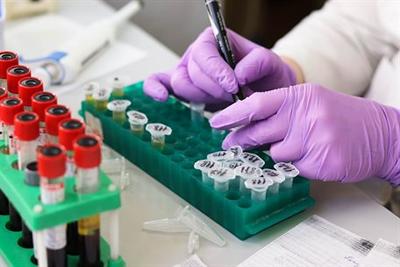£2.8 million lab to take killer infection fight to the frontline

Southampton's university-hospital partnership has won £2.8 million funding for cutting-edge research laboratories to tackle antibiotic resistant infections at the point of care.
Overuse of antibiotics has driven anti-microbial resistance (AMR) - the emergence of bacteria and fungi strains immune to their effects , resulting in infections that kill over 5,000 people each year in the UK. That figure is rising year-on-year and globally there is concern that new strains may emerge that are resistant to all existing antibiotics.
Now, University Hospital Southampton and the University of Southampton's Global Network for Anti-Microbial Resistance and Infection Prevention (UoS NAMRIP) are set to develop state-of-the-art research facilities to tackle that threat on the frontline.
Southampton is already at the forefront of world-leading clinical research in infectious diseases through studies such as Professor Robert Read’s pioneering use of genetically-modified harmless bacteria to dislodge strains that cause life-threatening meningitis.
"These bacteria have worked the current drugs out, and they'll do the same again. We have to keep finding new ways in, fast, but developing completely new treatments like ours will need completely new resources, like this lab,” explains Prof Read, infectious diseases professor and consultant, and lead on the funding bid.
“By bridging the gap between experimental AMR studies in our NIHR Clinical Research Facility, the UoS-based National Biofilm Innovation Centre and the clinical frontline it will speed up access to, and development of, new treatments," he adds.
Located at the heart of Southampton General Hospital, the lab will assess new rapid diagnosis technologies and new treatments in real-time, with researchers working directly with consultants and services including adult and children’s medicine, major surgery, infectious diseases and emergency care.
"It's critical that this facility is being embedded into hospital services. Patients will benefit by accessing trials of the very latest discoveries, diagnostic technology and treatment, whilst our development of those new options and understanding will be massively accelerated, to everyone's benefit," explains Prof. Saul Faust, paediatric immunology and infectious diseases consultant and Professor, and Director of the NIHR Southampton Clinical Research Facility which will work closely with the new laboratory.
The laboratory bolsters NHS efforts to move beyond good antibiotic usage and infection control, and to offer up new tools in preventing and tackling infection.
"Our dedicated and passionate staff are already tackling the threat of antibiotic resistance daily, through better prescribing, care and infection control. As a leading university hospital it's our role to take the fight to these infections and I'm delighted that this award gives us the means to drive tomorrow's treatments," comments Paula Head, CEO of University Hospital Southampton
The £2.8 million funding is part of a £32 million package awarded to ten sites nationally by the Dept. of Health and Social Care, in support of their 20 year vision and 5 year national plan on antimicrobial resistance.
"This award is a huge achievement for the team, the hospital and the university, and we are extremely grateful to the Department of Health and Social Care," comments Tim Leighton, Professor of Ultrasonics and Underwater Acoustics, and Director of NAMRIP at the University.
"For University of Southampton’s Global-NAMRIP this is an enormous opportunity to close the loop of researchers working with end users to define the key problems and opportunities to address AMR, conduct groundbreaking research to address those, and then progress to end users who can ensure breakthroughs are translated out to benefit on a societal scale,” concludes Professor Leighton.